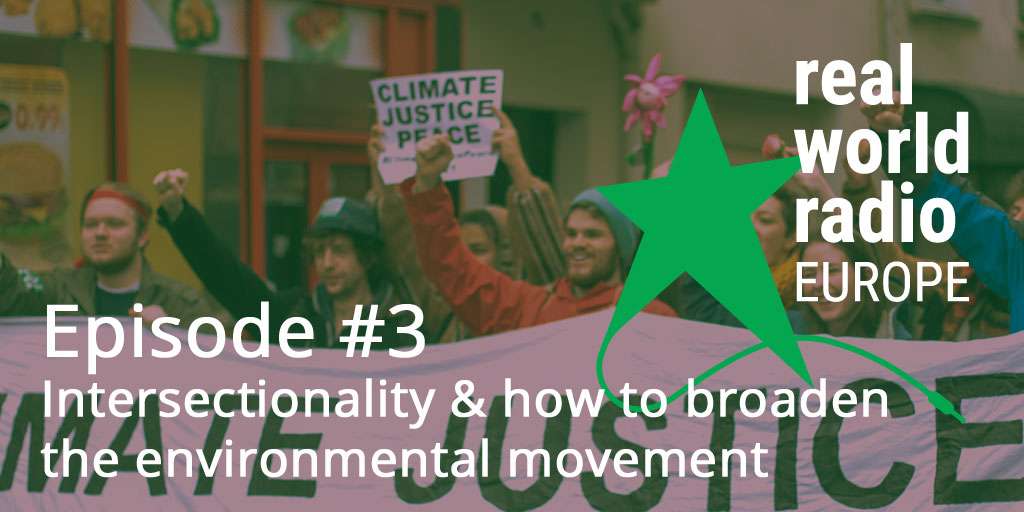At the recent Young Friends of the Earth Europe convergence event on intersectionality in theory and practice, we recorded an episode of the Real World Radio Europe podcast on intersectionality: what it is, and how we can (practically!) make the environmental justice movement broader and more inclusive. Let’s not mince words: we mean less white, male, straight and middle-class.
Listen on SoundCloud (or subscribe on iTunes, Stitcher, or wherever you get your podcasts)
As Naomi Klein says, to change everything, we need everyone. And with intolerance and oppression on the rise, it’s more vital than ever that what we think of as our ‘environmental’ campaigns are built on strong social justice foundations. For instance, recognising that poverty, gender, race, class, gender identity and more affect how you’re affected by climate change, and making sure those who are on the front lines of its impacts are welcome and involved in our campaigns and that their voices are amplified, and making sure we get out there and support ‘their’ struggles

